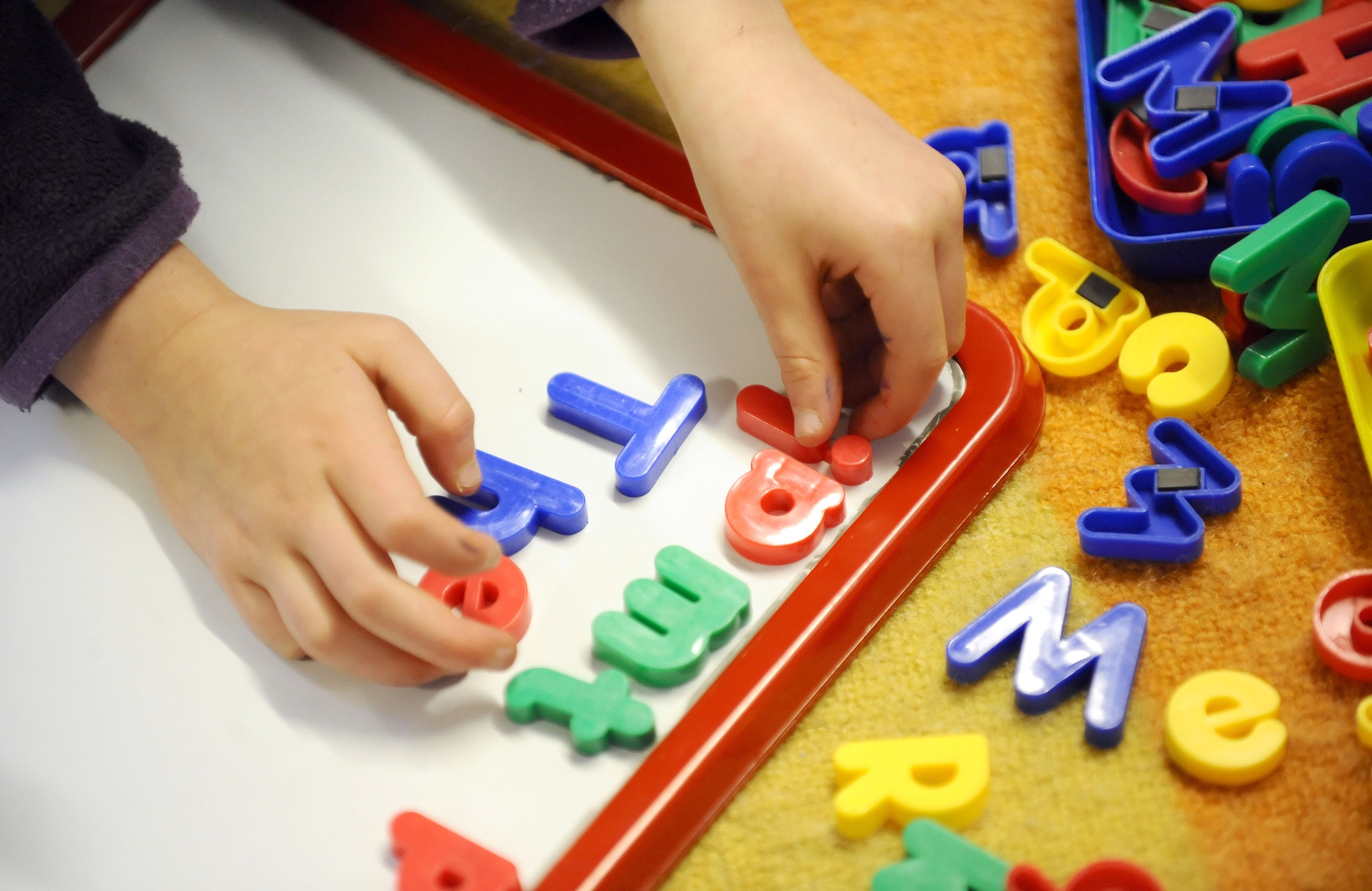Labour: Average nursery place cost soars by nearly £1,500 in five years
A new analysis suggests after-school clubs for primary school children are now 17% more expensive than in 2018.

Your support helps us to tell the story
From reproductive rights to climate change to Big Tech, The Independent is on the ground when the story is developing. Whether it's investigating the financials of Elon Musk's pro-Trump PAC or producing our latest documentary, 'The A Word', which shines a light on the American women fighting for reproductive rights, we know how important it is to parse out the facts from the messaging.
At such a critical moment in US history, we need reporters on the ground. Your donation allows us to keep sending journalists to speak to both sides of the story.
The Independent is trusted by Americans across the entire political spectrum. And unlike many other quality news outlets, we choose not to lock Americans out of our reporting and analysis with paywalls. We believe quality journalism should be available to everyone, paid for by those who can afford it.
Your support makes all the difference.Labour says the average annual cost of a nursery place for children under two has risen by nearly £1,500 in five years, putting a strain on working families.
New analysis by the party also suggests that for primary school children, the average cost of an after-school club has risen 17% over the same period.
It comes after a recent survey by Pregnant Then Screwed and Mumsnet found that 40% of mothers were having to work fewer hours than they would like due to childcare costs.
Labour found that the average weekly cost of a full-time nursery place for children under two in England has risen 16% in five years, from £236.19 in 2018 to £273.57 in 2022.
For two-year-olds, the rise has been 15%, the party said, from £231.75 in 2018 to £265.38 in 2022.
Extrapolating these totals across a school year of 38 weeks, the party found that the average annual cost of a place for children under two has risen by £1,420.44 in five years.
Labour also found the average weekly cost of an after-school club for primary-age children in England has increased by 17% over the same period, from £56.82 in 2018 to £66.75 in 2022.
The party’s analysis was based on the Coram Family and Childcare Annual Surveys from 2018 and 2022.
Bridget Phillipson, Labour’s shadow education secretary, said: “The Conservatives are making high quality childcare increasingly unavailable and unaffordable.
“Parents are having to work fewer hours or leave jobs because they cannot find or afford it, once again failing children and families.
“Labour’s Children’s Recovery Plan would invest in early years places for children on free school meals and boost access to before and after-school clubs, as families fight rising prices.
“The Chancellor has failed to give families security.
“Labour would halt the national insurance rise and use a one off windfall tax on oil and gas companies to cut household’s bills by up to £600 and put families first.”
A Government spokesperson said: “The early years of a child’s life are the most crucial, which is why we have invested more than £3.5 billion in each of the last three years to deliver the Government’s free childcare offers, including the 30 hours per week for working parents which is supporting thousands of families.
“We are also investing millions to transform services for parents, carers, babies and children, including through Family Hubs where families can access important support services.
“We continue to look for ways to improve the cost, choice and availability of childcare, and alongside this we have recently announced the biggest ever increase in the national living wage since its introduction, to support working families more widely.”
A Government spokesperson said: “The early years of a child’s life are the most crucial, which is why we have invested more than £3.5 billion in each of the last three years to deliver the Government’s free childcare offers, including the 30 hours per week for working parents which is supporting thousands of families.
“We are also investing millions to transform services for parents, carers, babies and children, including through Family Hubs where families can access important support services.
“We continue to look for ways to improve the cost, choice and availability of childcare, and alongside this we have recently announced the biggest ever increase in the national living wage since its introduction, to support working families more widely.”